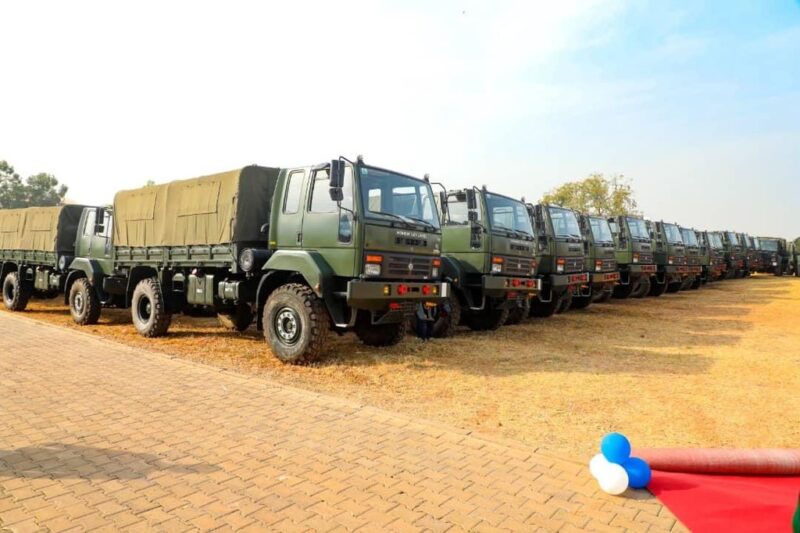President Muhammadu Buhari inaugurated on Friday March 3, 700 Ashok Leyland troops-carrying vehicles for the Armed Forces of Nigeria on Friday.
He said the procurement of the vehicles was in response to the prevailing security challenges bedevilling the nation.
The trucks were manufactured from their Ojo, Lagos State automobiles assembly and production plant.
The president said: “It gives me pleasure and honor to commission the 700 Stallion Ashok Leyland Troops Carrier Vehicles procured by the Federal Government of Nigeria.
The procurement of the made-in-Nigeria Ashok Leyland Troops Carrying Vehicles is one of such efforts made by government to encourage local companies in their efforts to manufacture equipment needed to fight insurgency.
Minister of Defence, Major General Bashir Salihi Magashi (retd), said the procurement, done in line with Executive Order Number Five, was a demonstration of the success of the partnership between the ministry and the private sector
He said in addition to the thousands of jobs created, the company will also train engineers from military establishments on the maintenance of the trucks.
Stallion Motors also offered training to the military engineers on usage and maintenance of the vehicles.
The local production and procurement of the Ashok Leyland trucks will enhance the Nigerian military’s logistics capacity, and improving it’s efficiency in carrying out military operations, as well as humanitarian and civic duties.
The new Ashok Leyland trucks will complement about 55 logistics and utility vehicles acquired by the Army three years ago which comprises of Toyota Hilux, Buffaloes, Innoson Motor Vehicles, Peugeot among others.
Other recent activities carried out by the Nigerian Army to boost logistics, includes procuring Medium Girder Bridge system from the United Kingdom at a cost of N985 million ($2,268,127).
